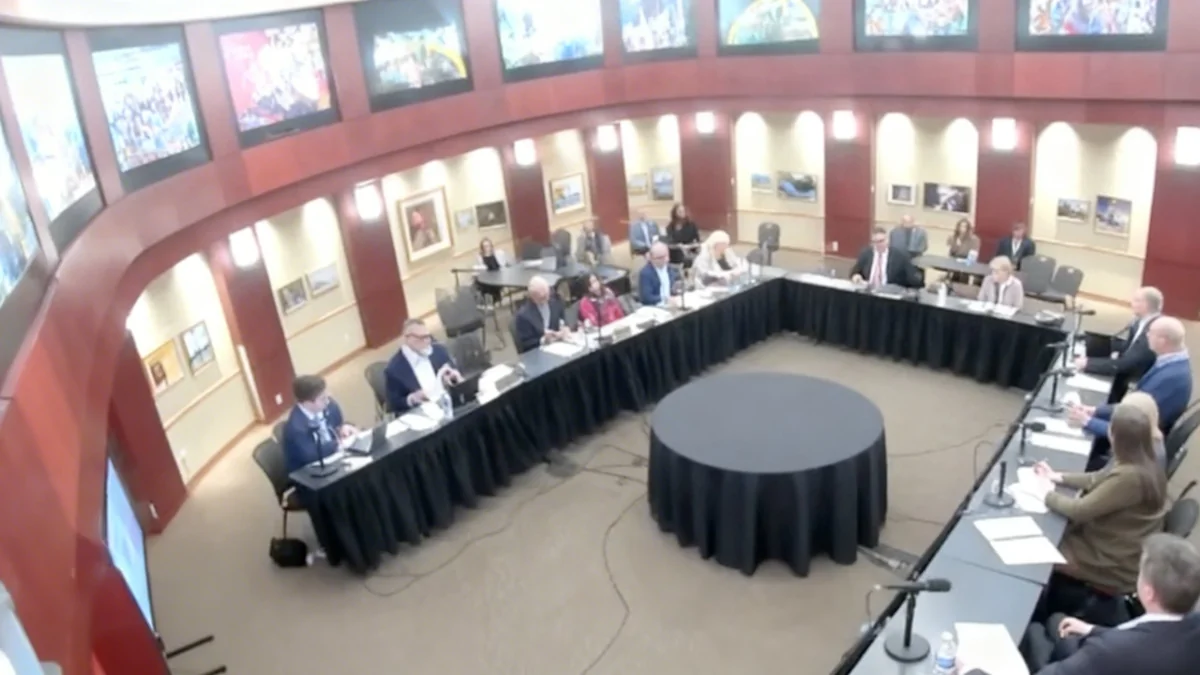Eight former teachers have initiated a federal lawsuit against Baltimore City Public Schools and a partner nonprofit, the Leaders of Tomorrow Youth Center (LTYC). The educators allege they performed their duties but never received payment, leading to significant financial distress.
The lawsuit, filed in federal court, names both the school system and the nonprofit as defendants, seeking compensation for unpaid labor and additional damages. The school district maintains it fulfilled its financial commitments to the nonprofit organization.
Key Takeaways
- Eight former teachers have filed a federal lawsuit for unpaid wages in Baltimore.
- The lawsuit targets both Baltimore City Public Schools (BCPS) and the Leaders of Tomorrow Youth Center (LTYC).
- BCPS states it paid its contractor, LTYC, over $600,000 for services rendered.
- The teachers claim the nonprofit's founder repeatedly promised payment that never materialized.
- Affected educators report severe financial hardship, including plummeting credit scores and difficulty paying bills.
Details of the Federal Lawsuit
The legal action centers on the claim that eight educators were not compensated for their work within the Baltimore City Public Schools system. The teachers were employed through a partnership with the Leaders of Tomorrow Youth Center, a nonprofit organization contracted by the district.
Howard Hoffman, the attorney representing the group of teachers, is leading the effort to recover what he describes as "hard-earned wages." The lawsuit seeks not only the full amount of unpaid salaries but also additional damages to address the financial and personal impact on the plaintiffs. Hoffman estimates the total compensation could reach tens of thousands of dollars.
Understanding School-Nonprofit Partnerships
Public school districts often partner with external nonprofit organizations to provide specialized programs, such as arts, music, or after-school tutoring. In these arrangements, the district typically pays the nonprofit a contracted amount, and the nonprofit is then responsible for hiring, managing, and paying its own staff who work in the schools.
A Teacher's Personal Account
Cedric Benning, a former arts teacher at Booker T. Washington Middle School, is one of the eight plaintiffs. He explained that his dedication to his students motivated him to continue working even as payments stopped. Benning stated that he received assurances of payment from Dermell Brunson, the founder of LTYC.
"He promised to pay us," Benning said in an interview, referring to the promises he claims were made by the nonprofit's leadership.
The lack of income has had a severe effect on his financial stability. Benning described the personal consequences in detail, highlighting the real-world impact of the alleged non-payment.
"I can't pay any bills, credit score plummeting, borrowing money from family," he shared. This situation illustrates the cascading financial problems faced by the educators involved in the dispute.
Benning expressed a fundamental principle at the core of the lawsuit. "Bottom line is if somebody renders services pay them no matter what it is," he stated. "Somebody renders service, pay them or have an understanding of why you're not going to pay them."
Baltimore City Public Schools Responds
In response to inquiries about the lawsuit, Baltimore City Public Schools issued a statement clarifying its position. A spokesperson for the school system asserted that the district had met all of its financial obligations to the Leaders of Tomorrow Youth Center.
Over $600,000 Paid to Contractor
According to the school district, it paid LTYC more than $600,000 for the services contracted. The district's statement emphasized that the responsibility for paying employees rests with the nonprofit organization, not the school system itself.
The district's statement effectively separates its role as a client from LTYC's role as an employer. The school system's defense implies that while the teachers worked in city schools, their direct employer was LTYC, making the nonprofit solely responsible for payroll. The lawsuit challenges this separation by naming both entities as defendants, suggesting a shared responsibility.
The Nonprofit's Role and Financial Obligations
The Leaders of Tomorrow Youth Center (LTYC) is central to the dispute. As the contractor hired by BCPS, the nonprofit was tasked with providing educational services and was responsible for its own operational costs, including employee salaries.
The teachers' lawsuit alleges that LTYC and its founder, Dermell Brunson, failed to meet these payroll obligations despite receiving substantial funds from the school district. The plaintiffs' attorney characterized the situation as unacceptable.
"They've been cheated out of their hard-earned wages," said Howard Hoffman, the attorney for the teachers. He described the circumstances as "shameful."
The legal proceedings will likely focus on the flow of funds from BCPS to LTYC and how those funds were managed by the nonprofit. The court will need to determine where the financial breakdown occurred and which party—or parties—are legally liable for the unpaid wages. The outcome could set a precedent for how public entities oversee the payroll practices of their contractors.





